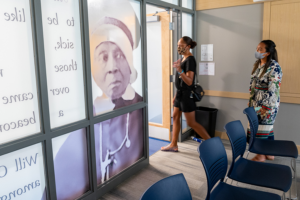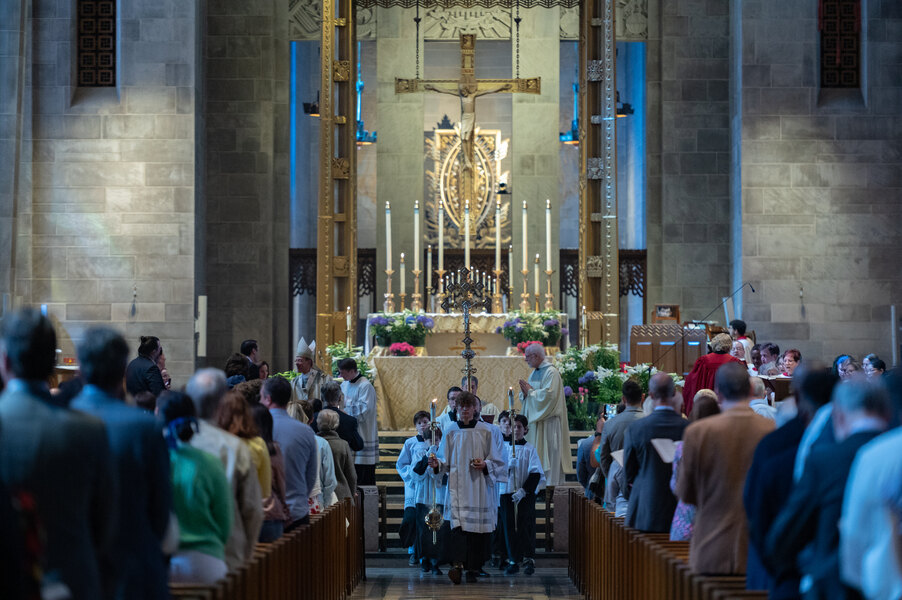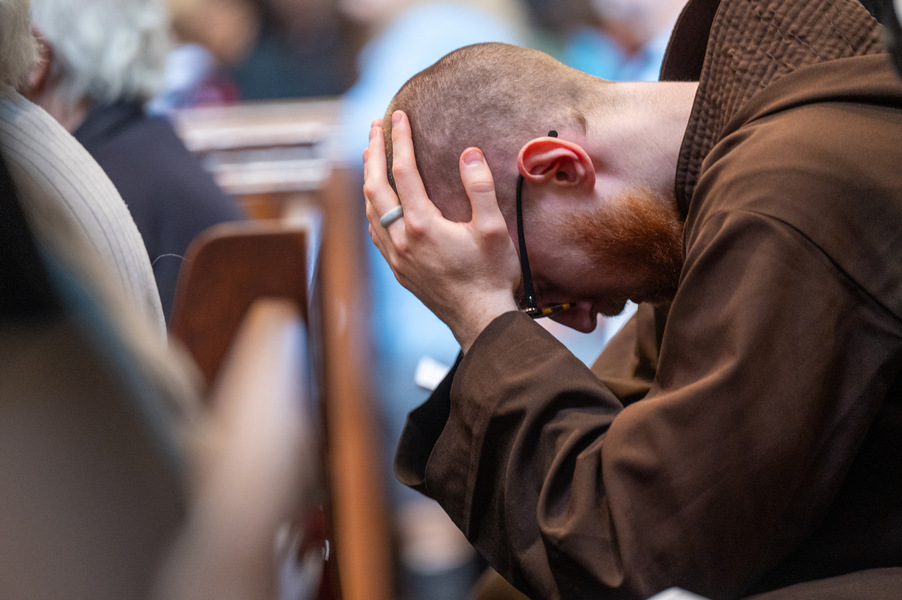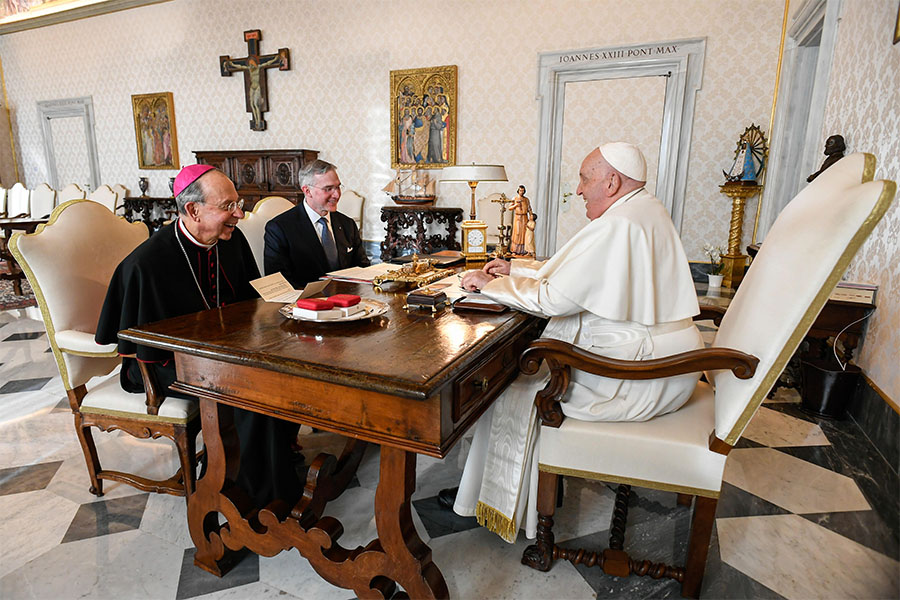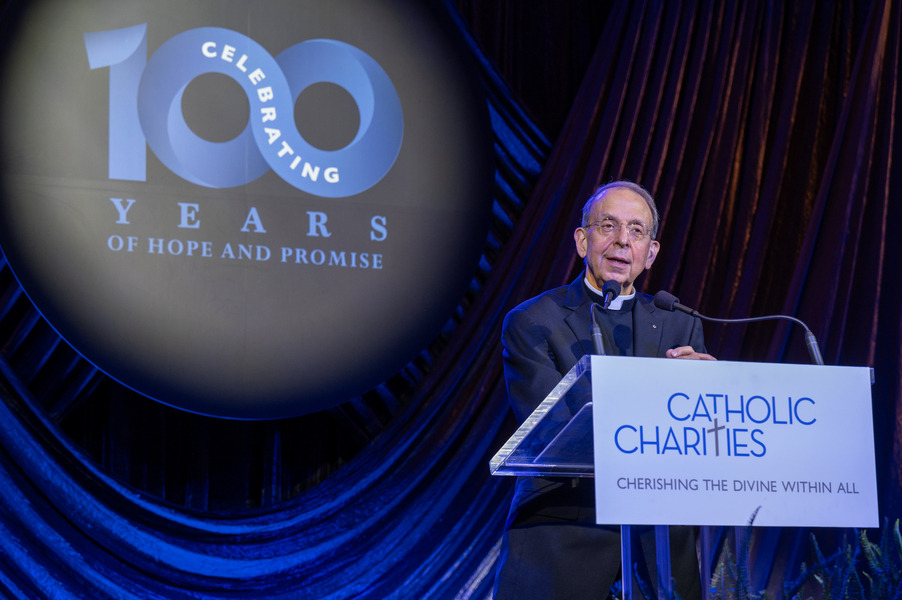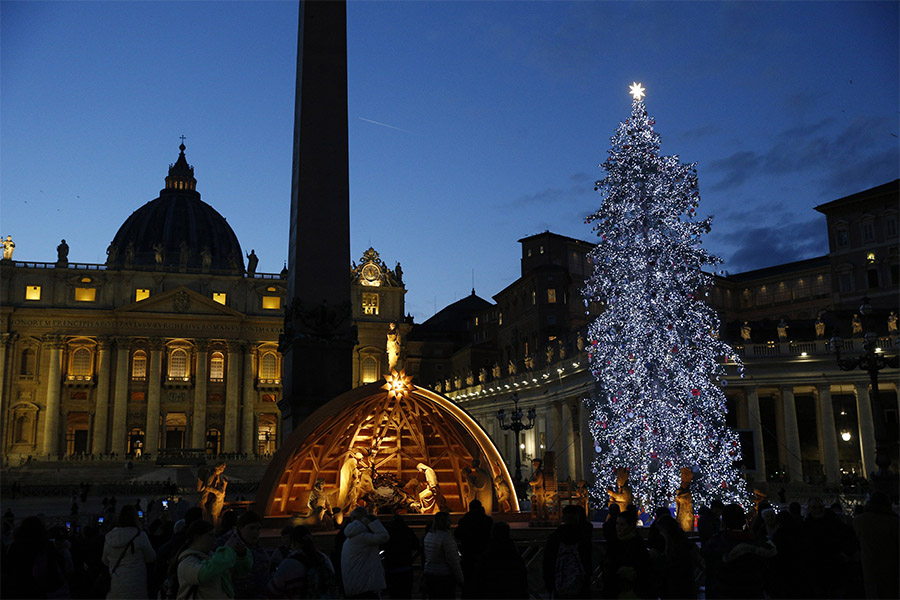February is Black History Month. It is a time when we celebrate the outstanding contributions of people of African descent. It is also a time to remember and acknowledge the racial injustice that has stained and continues to stain the history of our country and our Church. It is my hope that the synodal process, now under-way throughout the Archdiocese of Baltimore, will constructively confront these realities so that all of us may truly journey together, without prejudice or fear, toward the Kingdom of God.
One who truly showed how to do this was Elizabeth Clarisse Lange, better known to us as Mother Mary Lange. Born circa 1784, she grew up in Santiago in Cuba, likely in the French-speaking quarter of that city. She was well-educated and it is said she was part of a prominent family.
Around 1818, Elizabeth, accompanied by her friend Marie Madeleine Balas, came to the United States and eventually settled in Baltimore. Here she encountered many French–speaking refugees from Haiti.
She quickly recognized the need to educate their children. Using their own financial resources, Elizabeth and Marie Madeleine opened a school for these children in their home at Fells Point. Let us remember their courage: two Black women opened a school for children of color in a state where slavery was still the law of the land. Soon their school included not only refugees from the Caribbean but also the children of freed slaves living in Baltimore.
About the same time, a Sulpician priest, Father James Joubert, was ministering to Black families in the lower chapel of St. Mary’s Seminary on Paca Street. He came to know their needs, including the dearth of educational opportunities they faced. In his search for those who might fill this need, he encountered Elizabeth Lange and Marie Madeleine. Even as he encouraged them to expand their school, he sensed what was already in the heart of Elizabeth and Marie, namely, a desire to consecrate themselves wholly to God through vows of chastity, poverty and obedience. With the approval of the Archbishop of Baltimore, James Whitfield, Elizabeth founded the Oblate Sisters of Providence and took as her religious name Sister Mary Elizabeth.
Mother Lange was a woman of courage and initiative. With only three members in her new religious order, she set out on her mission to educate “young women of color.” Soon the Oblate Sisters attracted new members. She founded St. Frances School here in Baltimore, a school that continues to flourish.
Eventually, the Oblates would sponsor Catholic schools in some 25 cities in the United States and beyond. Along the way, Mother Lange and her sisters encountered racial prejudice and hatred. Though small of stature, Mother Lange stood tall. She overcame these obstacles by her wholehearted love of God and her love for the children she and her sisters were educating. Mother Lange was not a talker, but a doer, right up to her death in 1882.
Even this brief outline of her life demonstrates why her cause for sainthood is so worthy. What, then, can we do to hasten the day when Mother Lange will be declared a saint? Let me suggest four things:
First, we need to be familiar with Mother Lange’s story and share it with everyone, especially with young people.
Second, we need to pray for Mother Lange’s canonization in every parish throughout the Archdiocese of Baltimore. Each of us should keep her prayer card at hand and pray the prayer for her canonization daily.
Third, we need to pray to Mother Lange, entrusting to her the cares of our hearts and not hesitating to ask her for special favors, including physical cures and solutions to intractable problems.
Fourth, when we receive favors, we need to report them to the Oblate Sisters of Providence. We can do this online at motherlange.org (click on Mother Lange Guild). Let us pray earnestly for Mother Lange’s canonization. That is how we not only celebrate history but also create it!
Read More Charity in Truth
Copyright © 2022 Catholic Review Media
